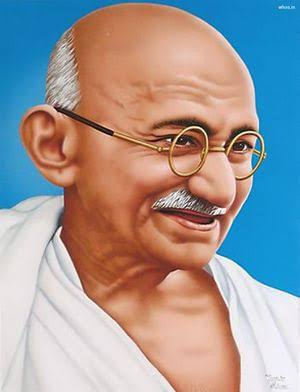Gandhi Jayanti: Honoring the Father of the Nation
Introduction:
In a world marked by tumultuous history and transformative leaders, few names shine as brightly as that of Mohandas Karamchand Gandhi, affectionately known as Mahatma Gandhi. Born on October 2, 1869, in Porbandar, India, he emerged as the guiding force behind India's struggle for independence against British colonial rule. Gandhi's life was a testament to the power of nonviolent resistance and the unwavering belief in truth and justice. His philosophy of Ahimsa, or non-violence, and Satyagraha, the pursuit of truth, continue to resonate globally as profound tools for social and political change. This article delves into the life, principles, and enduring influence of this extraordinary figure, shedding light on his pivotal role in shaping not only India's destiny, but also leaving an indelible mark on the world stage. From the dusty streets of India to the hallowed halls of global diplomacy, Gandhi's legacy stands as a beacon of hope, inspiring generations to champion peace, equality, and the triumph of the human spirit.
Gandhi Jayanti is a national holiday in India celebrated on October 2nd every year. It commemorates the birth anniversary of Mohandas Karamchand Gandhi, commonly known as Mahatma Gandhi. Born in 1869, Gandhi was a prominent leader in India's struggle for independence from British colonial rule.
Gandhi Jayanti is a day to honor and pay tribute to Gandhi's immense contributions to the Indian freedom movement. He advocated for nonviolent civil disobedience as a means to achieve social and political change, inspiring millions around the world with his philosophy of Ahimsa (non-violence) and Satyagraha (truth-force).
On this day, various events and ceremonies take place across the country, including prayer meetings, cultural programs, and seminars discussing Gandhi's principles and their relevance in today's world. His favorite devotional song, "Raghupati Raghava Raja Ram," is often sung, and his famous quotes are recited to inspire and educate people about his enduring legacy.
Gandhi Jayanti serves as a reminder of the enduring power of nonviolence and the importance of upholding truth and justice in our society. It encourages individuals to reflect on Gandhi's teachings and strive for a world guided by compassion, equality, and peaceful coexistence.
Conclusion:
As the sun sets on another Gandhi Jayanti, we find ourselves immersed in the profound legacy of a man whose ideals transcended borders and time. Mahatma Gandhi's unwavering commitment to nonviolence, truth, and justice continues to illuminate our path towards a better world. On this hallowed day, we stand reminded of the power of collective action driven by love and compassion. Gandhi's teachings serve as a compass, guiding us through the complexities of our modern era. Let us carry forward his torch of Ahimsa, lighting the way for future generations to build a world marked by unity, harmony, and the triumph of the human spirit. In honoring Gandhi, we honor the very best within ourselves, forging a legacy that endures eternally.





